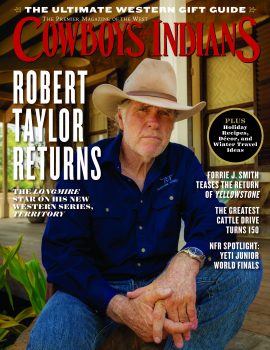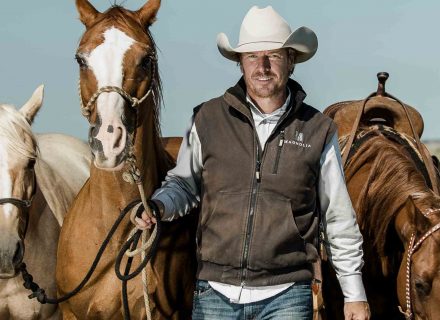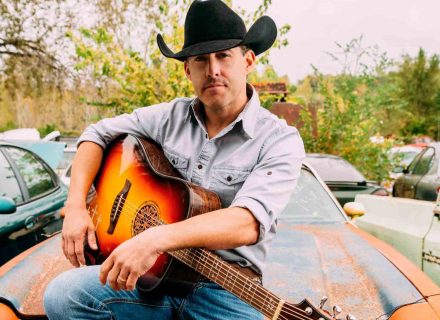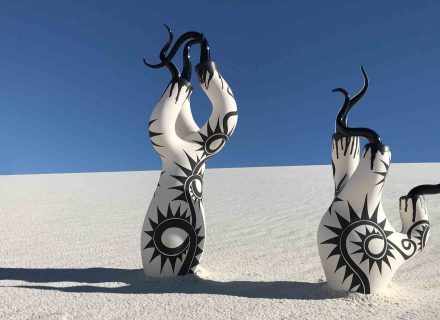Subsistence hunter and outdoorsman Ricko DeWilde — a Native American rights activist, entrepreneur, former addict, and current reality television personality — lives in two worlds.
Ricko DeWilde steps off of a small wooden boat on the Nenana River and onto dry land. The steep, muddy ridge he must ascend to continue our goose hunt is too tall for him to see over the top, but it’s not too tall to climb. He eyes it warily. “I don’t like going up the bank without a gun,” he says. “There might be a big bear up there.”
At first, I think he’s joking. But we’re deep in the Alaskan wilderness, he has already told me a handful of stories about shooting bears, and he indeed reaches back into the boat to grab his rifle. Following closely behind him, I think of that old joke about how fast you have to be to outrun a bear — faster than whoever you are with. I could not outrun DeWilde, who is lithe and powerful from decades spent carrying animals out of the woods. Then again, DeWilde would probably just shoot the dang thing so I wouldn’t have to run.
Whatever bears live in these woods remain out of sight. We follow a faint trail for a half-mile until we arrive at a hunting cabin. This is not the picturesque cabin of your Alaska dreams. It has four walls, one roof, one big room, two beds, one table, and that’s about it. There is no power source and what passes for décor is — oh, hell, nothing passes for décor. The owner died, and now it is essentially a community cabin. Whoever wants to use it can, but even getting there is no small task, as there are no roads. Boats and snowmobiles provide the only access.
The cabin sits near a small lake. DeWilde — a Native American rights activist, entrepreneur, former drug addict, and reality TV personality — and I stand on its edge and scan for geese to add to the one he shot an hour ago. Meanwhile, Hugh “Binka” Kriska, DeWilde’s friend whose boat brought us here, starts a fire.
As I pluck the goose, I roll it over in my hands. It feels like a warm Nerf football. Using a fallen tree as a table, DeWilde cuts off the goose’s head and sticks his hand inside. Blood spills onto the ground. He pulls out the gizzard, heart, intestines, stomach, lungs, and windpipe. He slices open the gizzard and wipes out the gravel inside.
DeWilde fashions a spit out of a stick and pierces the goose. He slides the spit into the ground at a 30-degree angle with the bird over the fire. He rotates it occasionally, and it turns from red to gray as we sit on folding chairs and watch.
When the goose is done, DeWilde jams the stick into the ground so it stands straight up. I slice off a piece of breast, pop it into my mouth, and chew. I marvel at this whole experience. I’ve never eaten anything that was so recently alive. My reverie ends when I almost choke on something hard. I spit it out — a shotgun pellet.
In color, texture, and taste, the goose reminds me more of pork than chicken. The gizzard tastes like tofu and has the consistency of an eraser. Goose is usually fatty. This one isn’t, which explains why DeWilde only shot one. To shoot more geese that aren’t good for eating would run counter to the Native American hunting philosophy (specifically Koyukon Athabaskan) that has guided his life for decades.
I asked DeWilde — who joined the cast of the National Geographic Channel reality show Life Below Zero for its latest season, which began airing in September — to let me tag along when he went hunting so he could teach me about the traditional subsistence-hunting way of life that he grew up in. Within a few hours of hitting the river, we shoot, kill, pluck, cook, and eat a goose. I grew up in the suburbs of Detroit and spend most of my days in front of a computer at my home in St. Louis, so today is as wild as wild gets for me. But to DeWilde, it’s just another day in a life in which he is constantly searching for balance between two worlds — the one he grew up in and the one he lives in now.
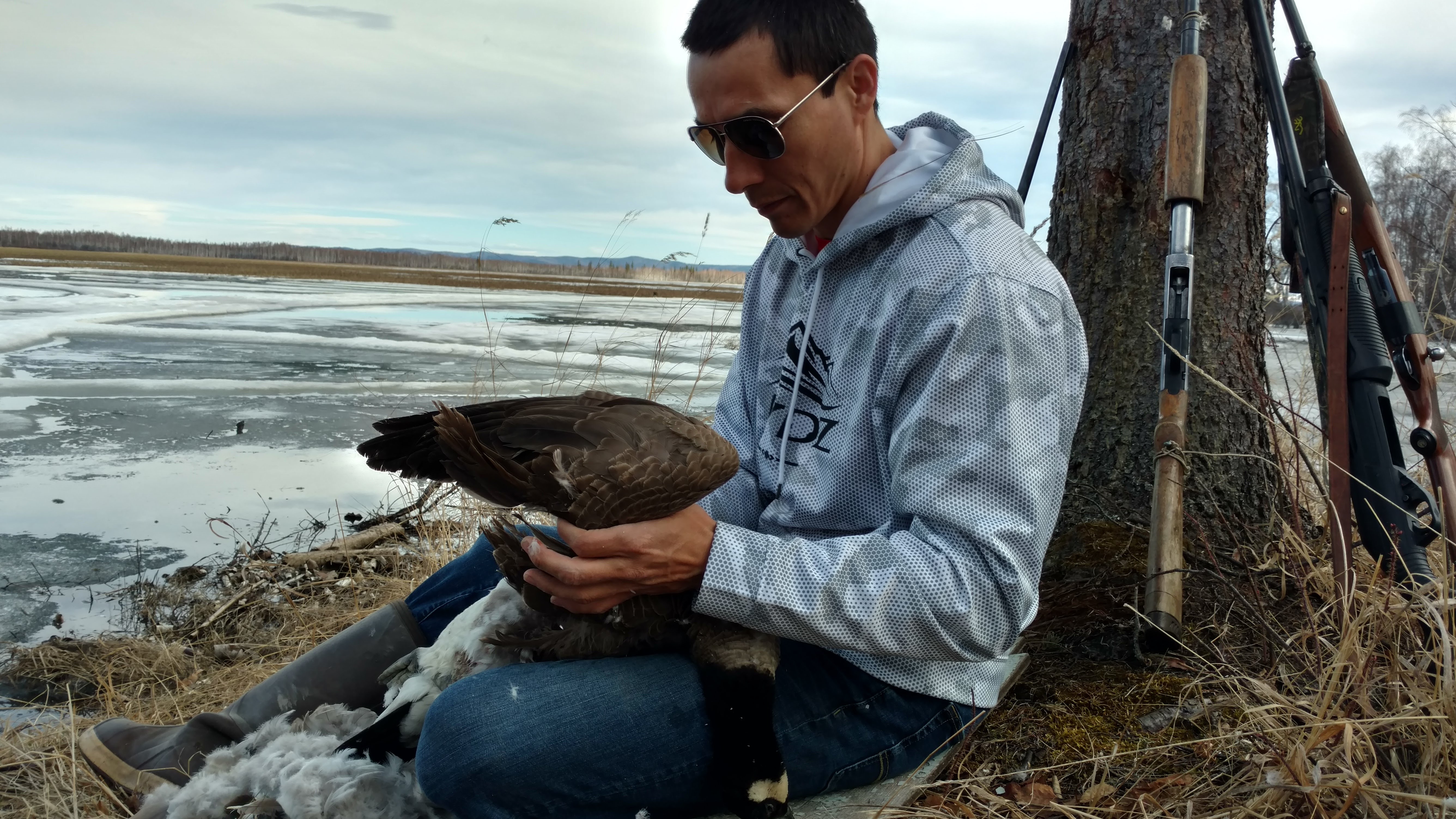
I had picked DeWilde up at Fairbanks International Airport the day before our hunt. He was wearing aviator sunglasses and a sweatshirt with “Hydz” — that’s his apparel company — printed on the front. As we discussed over dinner where to go hunting, he called Kriska, a fellow Koyukon Athabaskan hunter who knew this area better. DeWilde usually hunts hundreds of miles from Fairbanks. Kriska offered to be our guide, and DeWilde gladly accepted. He cares deeply about the informal economy of his Koyukon Athabaskan community. He shares — knowledge, meat, hides, whatever — because others have shared with him. “That’s how it is with Natives,” he says.
The next morning, I ride shotgun in DeWilde’s Dodge Ram as we head to the Nenana River. I see the sprawling Denali range out the window. A valley, mostly green but dotted with snow and laced with brown ribbons of river, stretches between us and the mountains. Fairbanks falls into shadow behind us as we leave the comfort of the city and head for the challenges of the wilderness.
As he drives, DeWilde talks about looking for balance between the two. He lives in Fairbanks and returns often to Huslia (population 275). He calls that his hometown, but the remote cabin he grew up in with his 13 brothers and sisters was 100 miles by river from Huslia.
His dad, Lloyd, was a white man of Welsh descent from San Francisco who moved to Alaska in search of a different way of life. His mom, Amelia, was a Koyukon Athabaskan, born and raised in Alaska. His parents home-schooled him and taught him the traditional Koyukon Athabaskan lifestyle.
Much of what he talks about from those years revolves around learning how, and how not, to hunt. When DeWilde was a young boy, his mother taught him to trap rabbits. But at first, instead of killing them, he set them free. His mother chastised him and said that was like playing with the animals, which runs counter to the Koyukon Athabaskan ethos of treating animals with respect. “You’re not just talking about the animal on a superficial level,” says his sister La’ona DeWilde. “It’s more like: This animal has a spirit. It was alive, and now we’re going to thank it.”
Ricko DeWilde first noticed the tension between his two worlds when he visited Huslia as a boy. Even a town of 275 seemed fast-paced to him, and that pace accelerated when he moved to Fairbanks as a young man. “It ain’t all romantic, growing up like Little House in the Big Woods,” says his brother Lee. “We got to the city and we’re young, we’re naive, we’re easily impressed. There’s these street-smart kids who take you under their wing. It’s easy to take advantage of people like that.”
Ricko, who turned 43 on the Fourth of July, compares his life in those days to a man at an airport wracked with loneliness. But that man knows if he gets on a plane and goes home, his loneliness will wash away. DeWilde thought he would be stuck in the airport forever. He developed a substance-abuse problem with oxycodone and felt trapped. “I can do something with my life, but this thing’s got me. It’s a very defeated feeling,” he says.
He spent two years in prison on cocaine-possession charges, and that turned out to be the best thing that ever happened to him. He quit drugs — he says he has been clean for 15 years — and turned his life around. “I felt so much better when I was able to laugh and let my feelings out,” he says. “I learned to wake up every day and think, I might feel like crap, but eventually I’ll be smiling and talking.”
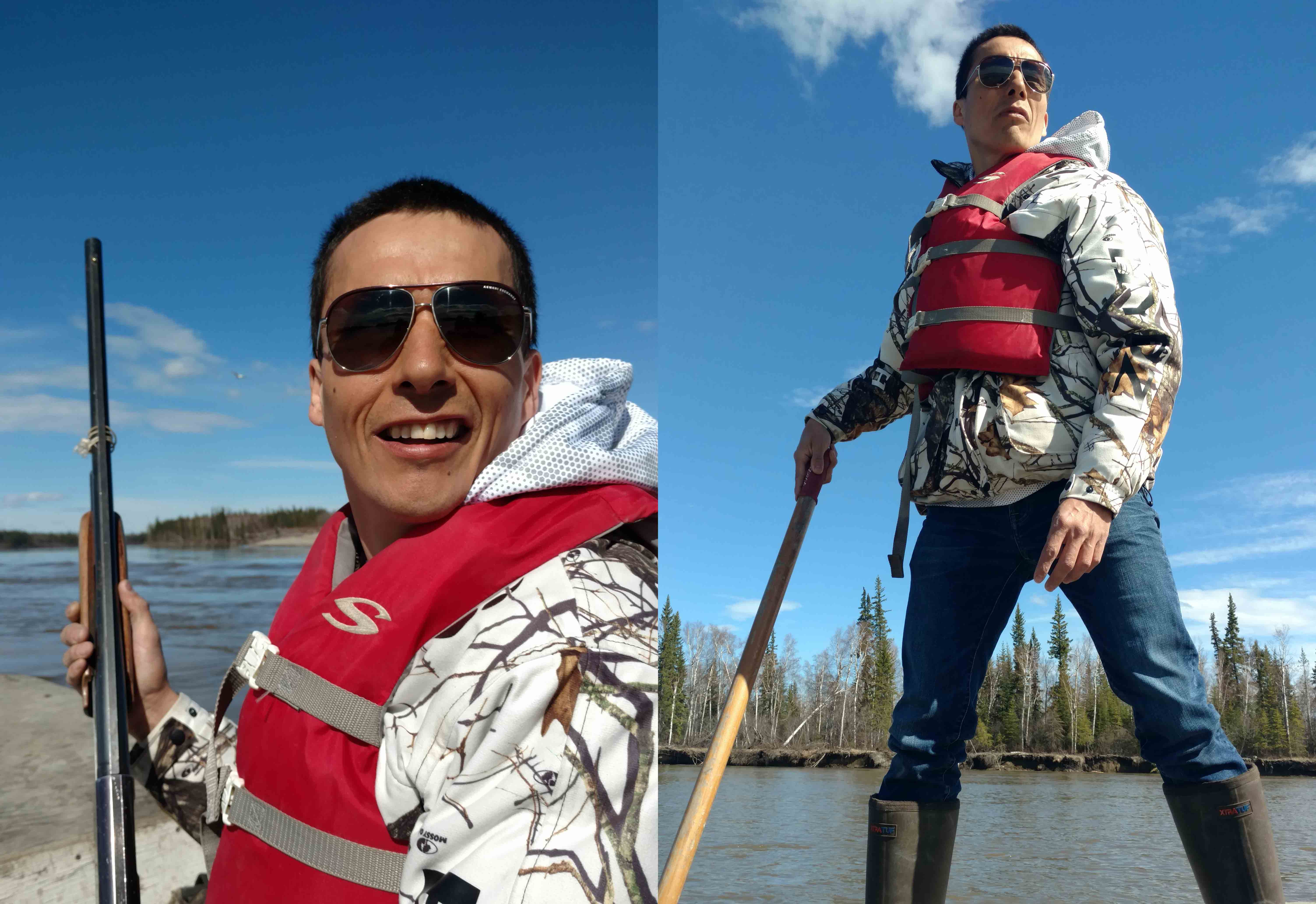
Twice in talking to me, DeWilde uses the phrase “rugged hustle,” and that’s a great summary of his joie de vivre. He’s always working on something, whether he’s hunting, promoting his clothing line, or advocating for Native Americans. “He’s somebody that will never stop,” says Roger Watkins, a friend whose screen-printing company produces DeWilde’s clothing line. “He’s always moving, always thinking of new ideas, building things, trying to make something out of his ideas.”
In 2007, Huslia held a memorial potlatch for his mom, dad, sister, and grandma. In Native American communities in the Pacific Northwest, a potlatch is a celebration of a person’s life, like a wake but held long after the person’s death. The third day of a potlatch traditionally features gift-giving from the family to people who were close to the person who died and who helped during the funeral and time of loss.
DeWilde asked an artist friend to create images that showed beauty and strength. He took those drawings to Watkins, who put them on hoodies, which DeWilde gave away at the potlatch. The reaction to them was so strong that he launched Hydz and started selling them. Some depict wolves, bears, and eagles looking fierce and powerful. Others are muscular hunters searching for their prey. Still more look like Iron Maiden album covers, if Iron Maiden were trying to appeal to hunters.
He laments how the traditional way of life is disappearing and hates what he describes as the stereotypes about Native Americans. He wants his clothing line, his activism, and his life to reflect the strength and beauty of the Native American lifestyle.
As passionate as he is, he chooses his words carefully and checks to make sure I understand. As an activist, his public comments are sometimes misconstrued. “I can easily piss off the white people or the government because they think I’m saying, ‘You guys made us like this,’ ” he says. “Then I can easily piss off the Natives, because they’re saying, ‘You’re saying we’re lazy and we don’t do enough.’ ”
This is where he needs that balance. He does not condemn either side, nor does he hold either blameless. He scoffs at critics who suggest he hates the European influence in Alaska, and that if he likes the traditional Native American life so much, he should do it full time. He laughs and waves around at his Dodge Ram. No Europeans would mean no truck — and he loves this thing, because it’s badass. “You can’t beat that,” he says. “But they brought bad stuff, too, so I’m going to argue. I’m not going to sit there and lose 1,000 years of knowledge.”
Only Alaska could give him that knowledge, and nowhere can he apply it more than here. Except for one year of college in the 1990s, he has spent his whole life in the 49th state. “I don’t belong in Alaska. I belong to Alaska,” he says. “I don’t own land in Alaska. Alaska owns me. I’d be lost if I moved away.”
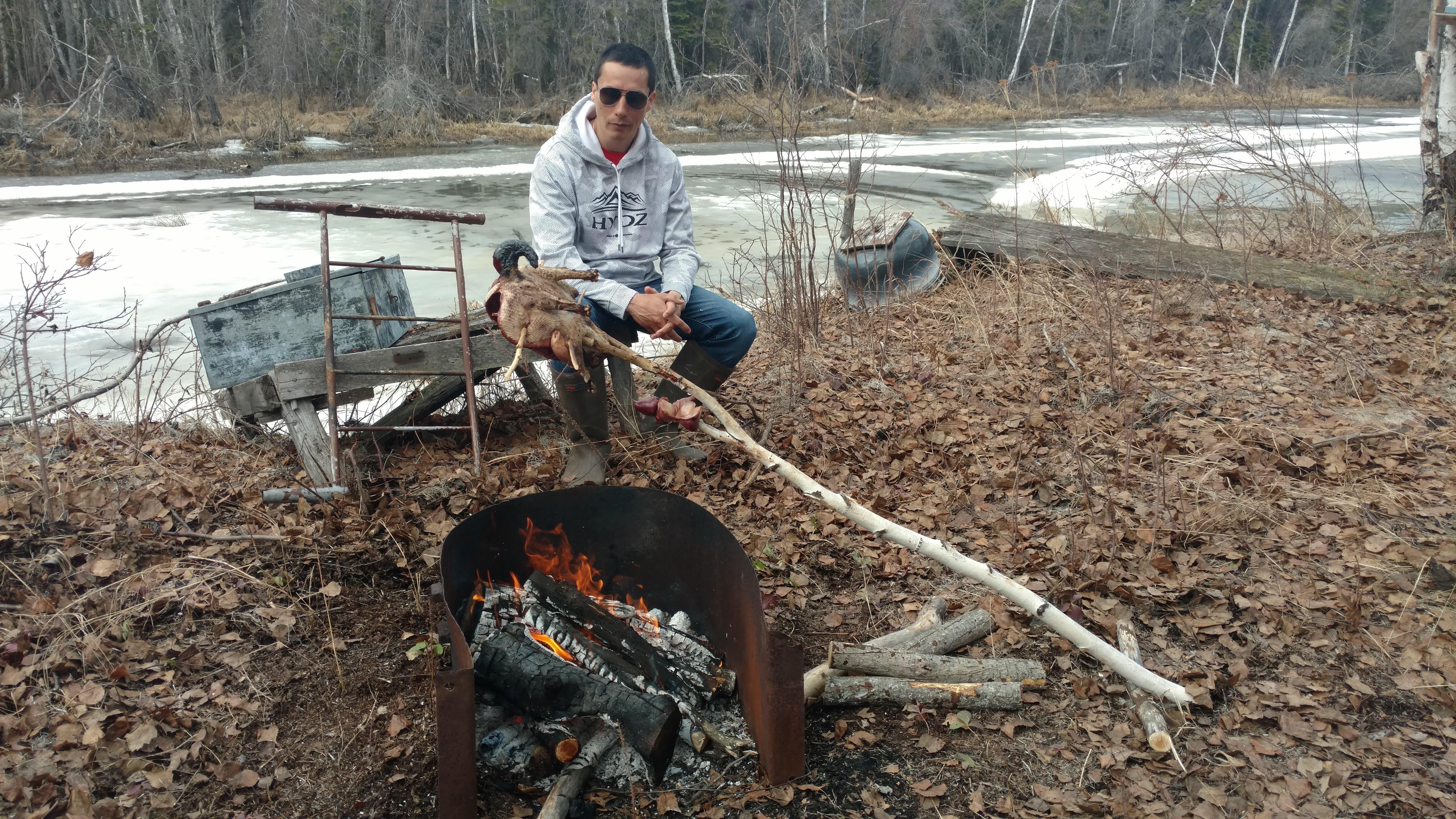
Our bellies full of goose, we tromp back through the woods to the boat. The mud-brown river is a few hundred feet wide and lined by cottonwood, spruce, willow, and alder trees. Chunks of ice and logs, some big enough to damage the boat, maybe even sink it, flow toward us. Kriska navigates around them like a snake slithering through a rock pile. DeWilde gives him an appreciative nod, like how a basketball player nods to the teammate who threw him an alley-oop.
DeWilde would not have even tried to pilot the boat through those dangers, as it would have been outside of his comfort zone. A lifetime of hunting has made him cautious, because he has seen the devastating results of overconfidence. A mistake in the Alaskan wilderness could kill him, and he never forgets that.
DeWilde knows he is a good hunter, but he can barely bring himself to say so. This is not false modesty. Koyukon Athabaskans view successful hunting as luck, or as nature sharing itself, and if you brag, your luck stops, or nature stops sharing. To brag would be hutłlaanee (pronounced hooh-kla-nee), a Koyukon Athabaskan word that translates as “taboo,” and it’s something no wise hunter would do.
The river rolls on beneath us. We are leaving the wilderness and returning to the city. Being on the water makes DeWilde reflective. “You get lost in society,” he says, waving his phone. “Everything is so fast. You have so much information in your hand.” But to what end? Part of what bothers him about modern life is that while it is easier, much of it seems pointless. The traditional way is more difficult but also more meaningful. “It’s harder to eat. It’s harder to get warm. But everything you’re doing is 100 percent for a purpose,” he says. “There’s a lot more gratification.”
He calls hunting “a walk-the-walk religion,” and every trip into the woods carries spiritual weight. No matter how much DeWilde hunts, there’s always more to learn and do and see, even today. DeWilde calls our hunting trip “surreal.” He says the boat ride reminds him of his childhood living in the cabin. Back then, impassable lakes and rivers limited his hunting radius in the summer. But once the water froze over, his feet could take him somewhere new, into another world. He says his ride in Kriska’s boat today took him to another world. That’s true for both of us.
From the January 2019 issue.












